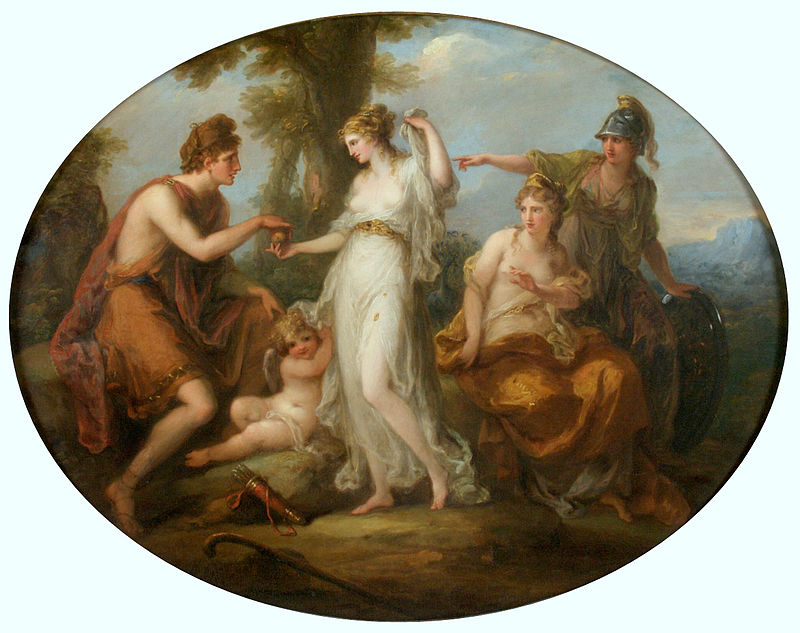Created circa 1640-1650, the myth of the Apple of Discord began with the marriage of Thetis and Peleus. According to the retelling of the myth by Josephine Preston Peabody, the goddess Eris was an "unwelcome guest," but "came unbidden" despite not having been invited. They had neglected to invite her because of her tendency to cause conflict.
Angered that she had not received an invitation to the wedding, the vengeful Eris mischievously decided to cause a commotion amongst the wedding guests by throwing a golden Apple at the feet of the guests. In the translation of "The Iliad," by Nick McCarty, on the Apple were "engraved the words 'For the fairest.'" in Greek. This was the Apple of Discord.
At seeing the words on the golden Apple, three goddesses went to claim it, each thinking it was meant for them: Hera, Athene, and Aphrodite. They each were vain in believing that they were the fairest at the gathering, and they couldn't decide who deserved it. The other gods didn't want to choose; they knew that whoever lost would seek revenge on them. Zeus decided that a mortal should choose: Paris. Reluctant for the same reason as the gods, Paris was wary to decide who was fairest, but he was persuaded to do so under Zeus's command.
He asked the goddesses to approach him one at a time. First was Hera. She said to him, "'Give me the prize, and I will make you Lord of Asia and the richest man alive.'" He didn't reply. Next was Athene, saying, "'If I win, I will bring you victory in all of your battles. I'll make you the wisest and most handsome man in the world.'" Not convinced, Paris shrugged and said "'I don't need to win battles; I'm a herdsman.'" Finally, Aphrodite approached. She said to him, "'Paris, a man as handsome as you won't waste his life on these mountains. You will marry Helen of Sparta, who is almost as beautiful as I am.'"
Without hesitation, Paris awarded the Apple of Discord to Aphrodite. This began a chain of events that led to the Trojan War: Later, Paris kidnapped Helen of Sparta, who was married to King Menelaus of Troy. The argument between them led them to fight against each other, supported each by Greece and Troy. ("The Iliad," Nick McCarty)
Someone would blame Eris, the goddess of discord, for all the tragic events that followed and the countless souls that ended up to the Underworld. But according to Euripides and the mentality of his contemporaries, everything is random and only your own actions are responsible for the outcome of your life.

